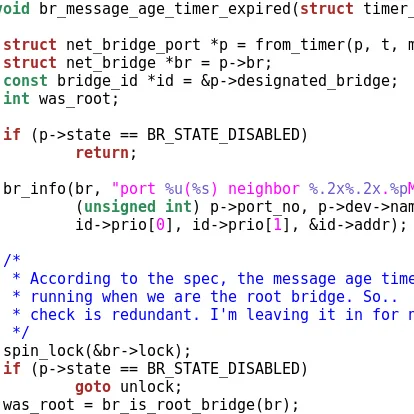Musl Libc 1.0 Is Going To Be Released Real Soon

The Musl standard library is known for being lightweight, fast, and free while being standard-conformant as a standard C library. A comparison against other libc implementations was done by the Musl project on this web-page. Musl was compared to uClibc, dietlibc, and eglibc.
Rich Felker of the Musl project wrote into Phoronix to share their press release that they are now in a code freeze ahead of the upcoming 1.0 release. With Musl 1.0 they have implemented all required interfaces for C99 and POSIX 2008 compatibility.
Musl libc enters freeze for milestone 1.0 release
March 5, 2014
Following three years of extensive development, testing, and cooperation with distributions and toolchain providers, the musl libc development team has declared a feature freeze in preparation for the release of musl 1.0. This milestone comes at a point where all required interfaces from C99 and POSIX 2008 have been implemented, well over 5000 packages have built successfully against musl, and a number of other compatibility and feature goals have been met.
Musl, pronounced like the word "mussel", is a project to create for Linux a new MIT-licensed implementation of the standard C library suitable for a full range of deployment environments, offering efficient static and dynamic linking support, lightweight code and low runtime overhead, strong fail-safe guarantees under correct usage, and correctness in the sense of standards conformance and safety. Musl is built on the principle that these goals are best achieved through simple code that is easy to understand and maintain.
Used alongside an existing Android userspace, musl bridges the gap between full-fledged Linux systems and Android, providing the necessary library foundation to run standard C and C++ software while retaining the license freedom developers have come to expect. Its permissive license, small size, and low memory footprint are advantages for other mobile computing and embedded uses too. A collection of build scripts and pre-built cross compiler binaries is provided through the musl-cross project, making it easy to get started.
Musl also serves as an alternative to the GNU C Library (glibc) on workstation and server class systems, offering comparable performance for most functionality, lighter and faster-starting programs, greatly simplified build and upgrade procedures, and a newly designed POSIX threads implementation that solves a number of longstanding race condition bugs present in glibc. Many of musl's earliest adopters have been alternative Linux distributions oriented towards desktop and server usage. These include distributions that have sprung up around musl development (Sabotage and Snowflake, among others), as well as several established distributions adding support for musl-based variants (Gentoo, OpenWRT) or switching entirely to musl as their core libc (Aboriginal, Alpine, Bedrock, Dragora).
More details on the project can be learned at musl-libc.org.
15 Comments

